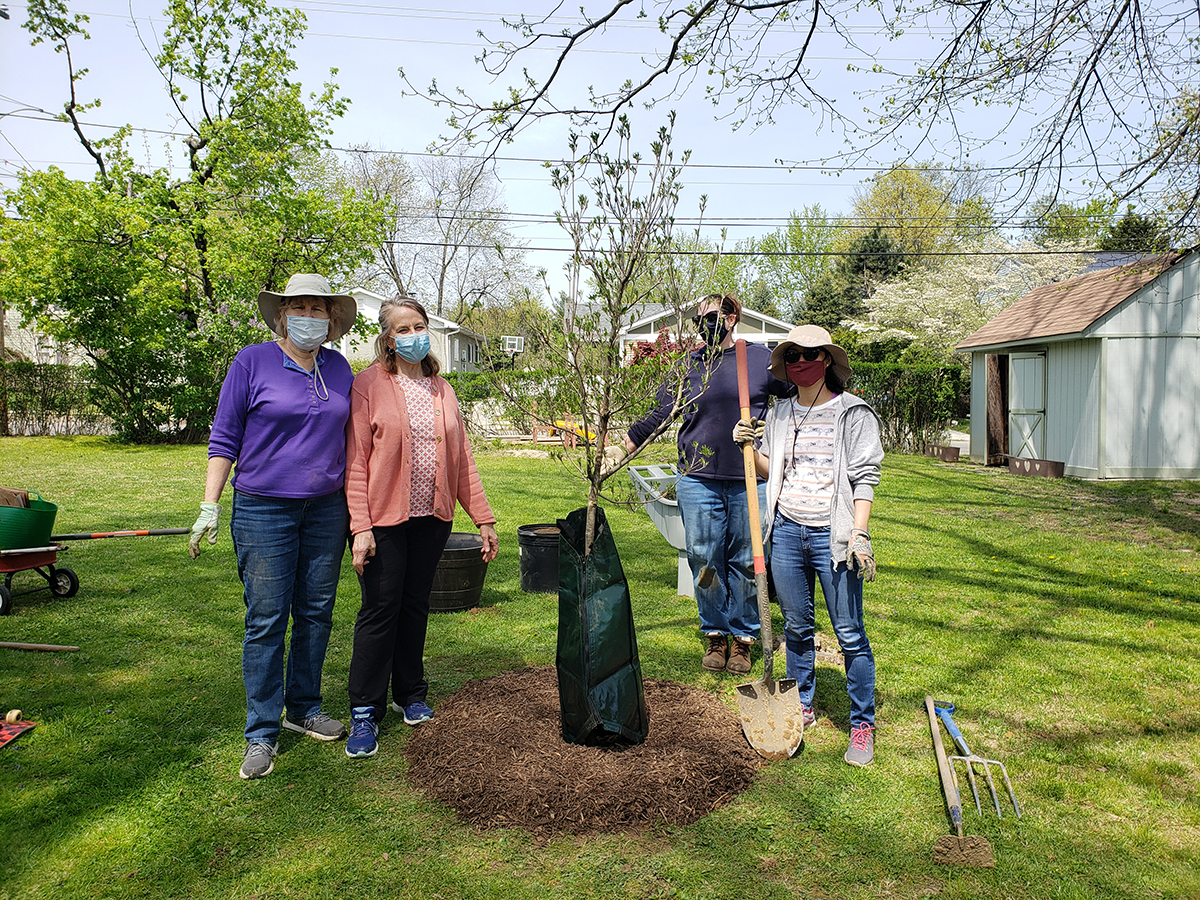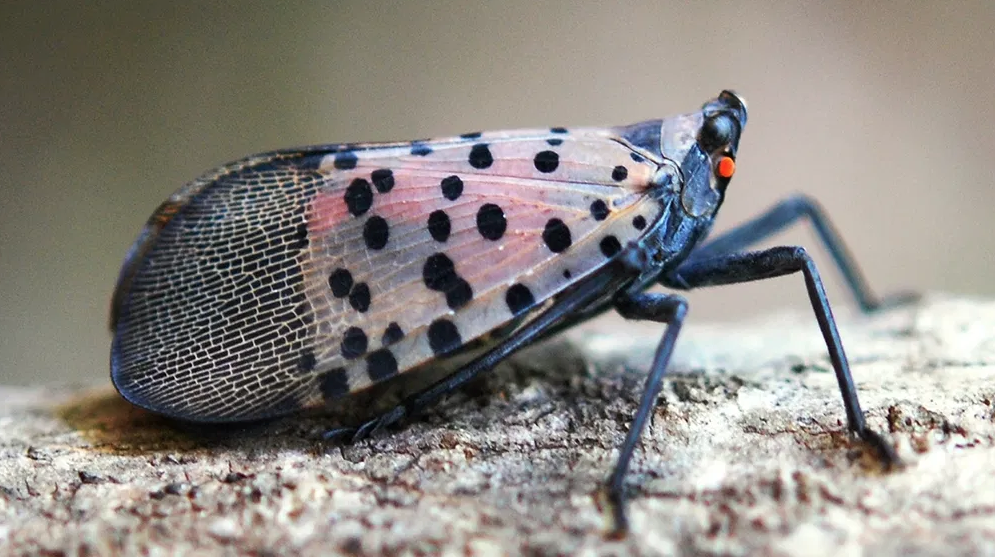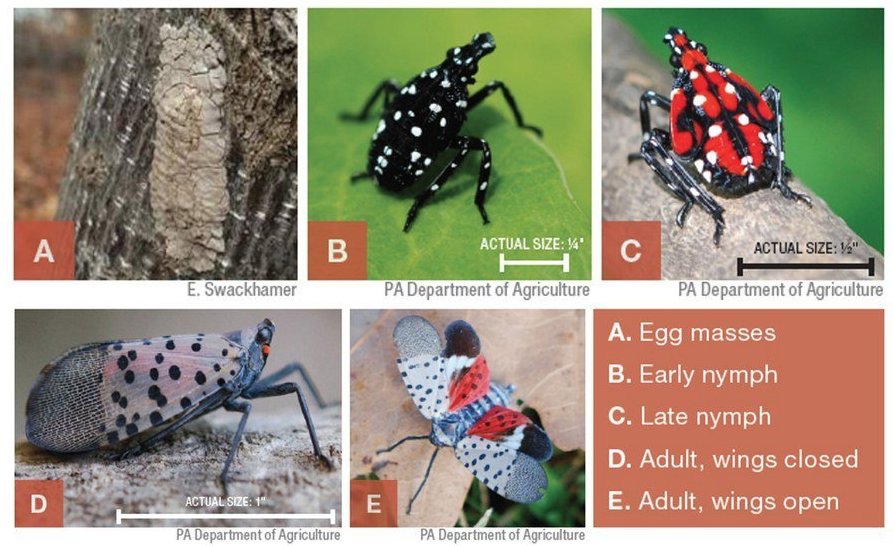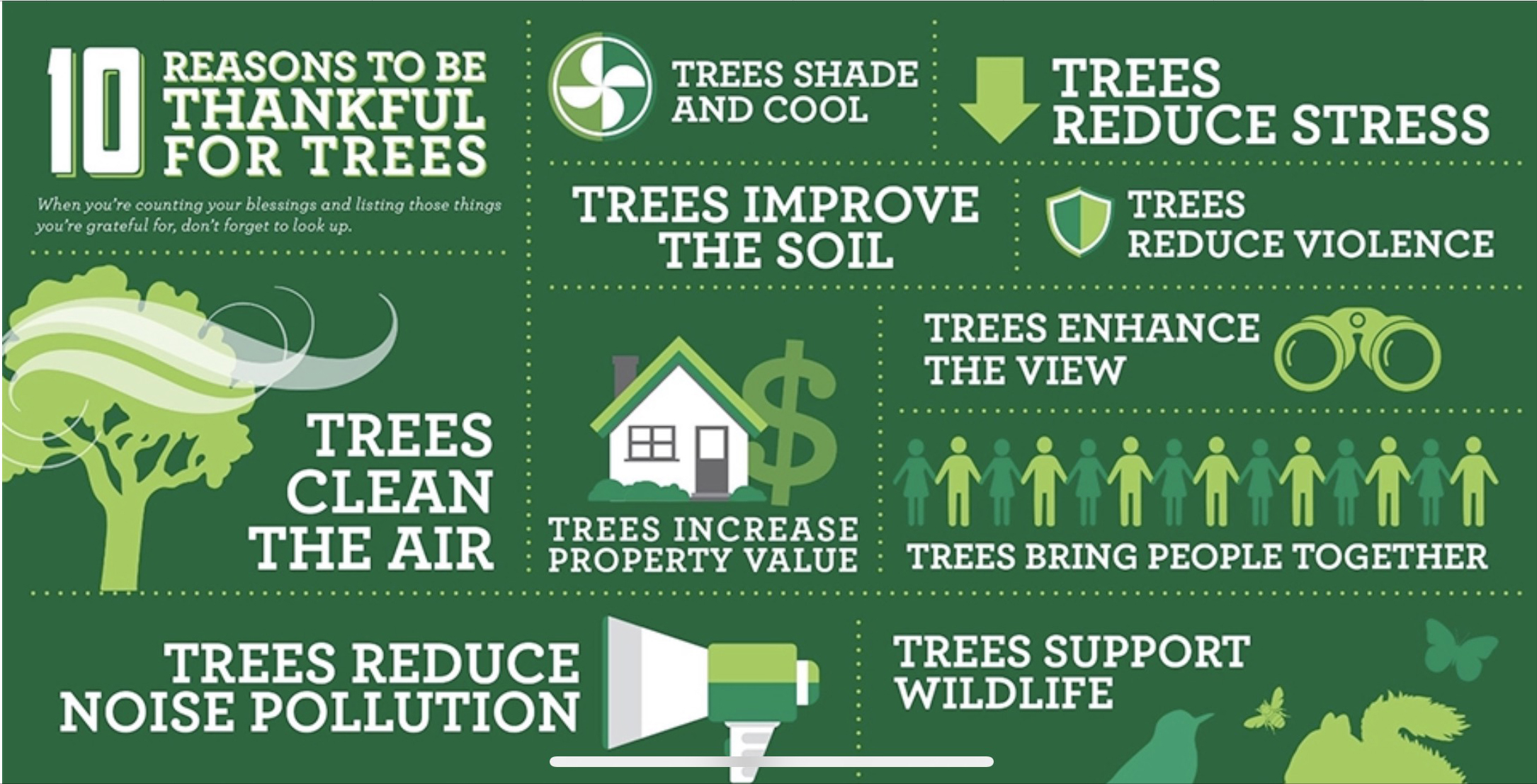OUR MISSION
The Rutledge Borough Shade Tree Commission exists to serve the community as an advisory resource to Borough Council as well as residents on all matters regarding trees on properties both public and private. The Shade Tree Commission aims to actively re-forrest Rutledge’s once tree-lined streets. With the knowledge of best practices and practiced arboricultural experience, The Shade Tree Commission intends to encourage and empower Rutledge residents to invest in the ecology of their property and their community through planting trees. Together as neighbors, we will beautify our community and set an example of environmental stewardship for future generations in Rutledge.
FALL TREE PLANTING CATALOG
ORDER BY September 8th, 2024
Limited Quantities on ALL TREES!
SPOTTED LANTERNFLY
Rutledge is feeling the full effect of the Spotted Lanternfly this summer.
Spotted lanternfly (SLF) is an invasive insect that has spread throughout Pennsylvania since its discovery in Berks County in 2014. SLF feeds on the plant sap of many different plants including grapevines, maples, black walnut, and other important plants in PA. If you see SLF, help us stop it in its tracks! To report a sighting, use our reporting tool below or call our hotline at 1-888-422-3359. Report here!
HOW DO I IDENTIFY THEM?
BUT WHAT CAN WE DO ABOUT IT!?
Penn State Extension recommends that if you find a spotted lanternfly, kill it and report it immediately with the Pennsylvania Department of Agriculture’s online reporting system or by calling 1-888-4BAD-FLY (1-888-422-3359).
You can also use this guide for residents dealing with the SLF in your yard and on your trees: Spotted Lanternfly Management for Residents
CHECKLIST FOR RESIDENTS
Penn State Extension has a comprehensive page on the frequently asked questions regarding the Spotted Lanternfly: find it here.
PENN STATE EXTENSION VIDEO on SPOTTED LANTERNFLY
Penn State Extension FAQ
ARE MY TREES GOING TO BE OKAY?
The SLF seem to be doing stress damage, but not total deforestation and causing death of host trees. Your trees will likely be okay, and should not need to be removed unless a representative from Penn State Extension specifically recommends you do so. That said, it is still important to control the SLF whenever possible, by killing the insects, scraping egg masses, and in some extreme cases, treating the trees with a systemic pesticide to kill the invading insects. Since an attempt to remove the trees would likely only displace the SLF, Penn State Extension suggest the best practice is to kill the insects where they are.
WHAT KIND OF PESTICIDES SHOULD I USE?
We must remember the honeybees which are severely affected by all pesticides. Keeping that in mind STC as well as Penn State Extension recommend manual methods for removing the bugs: squishing, scraping, etc.
Rutledge Shade Tree recommends killing the SLF by squishing them and scraping and destroying the egg masses is the best way to manage them in our yards. Pesticide sprays have a limited degree of effectiveness, and can also affect other insects and wildlife, while also washing away quickly. When we contacted Penn State Extension, they suggested that we recommend to residents to simply squish-to-kill and also use a simple dish soap/water/vegetable oil mixture to spray and disarm and disorient the SLF with the intent of squishing them.
Penn State Extension also suggested that if infestations are extreme and too high in a tree to reach, a systemic pesticide can be administered. This type of pesticide would be sourced and distributed by the Rutledge Shade Tree Commission, in partnership with the borough. If you feel that you have an infestation of this nature on your property, please contact the borough or the Rutledge Shade Tree Commission (rutledge.shadetree@gmail.com)
Be advised that this systemic pesticide is administered by ‘feeding’ it to the tree, allowing the trees’ roots to soak up the poison and make itself toxic to the SLF. This will not kill the tree, but must only be utilized while the tree is actively growing. Once the tree beings to go dormant (as leaves change and sap returns to the roots) this type of pesticide will become harmful to the tree and ineffective to the SLF. If you have such an infestation, please contact us ASAP.
HOW CAN WE GET THEM UNDER CONTROL?
This is a major infestation over much of the Mid-Atlantic. Scientists are working to develop methods of control such as male fly sterilization. That and other methods have helped manage other pests of such magnitude in the past such as the gypsy moth that caused such destruction in the 1980’s. Trees will be lost initially but in a few years this pest will not be as deadly.
First, we can all do our part to kill them when we see them, at any stage in their development. It will take a serious effort by all residents to identify and manage the SLF in municipalities all across our region. Penn State Extension, as well as several other state organizations and universities are working hard to test possible solutions to controlling the SLF population. One such research study is being conducted right here in Pennsylvania, at Blue Marsh Lake in Berks County. You can read all about this research here.
email us: rutledge.shadetree@gmail.com
Every year, PHS (Pennsylvania Horticultural Society) offers basic tree care classes across Philadelphia and the greater Delaware Valley. The program offers hands-on tree care training; covering biology, identification, planting and proper care of trees. If you have ever wanted to know more about trees, and care for the trees in your yard, this is the perfect opportunity to learn! Check out the PHS Tree Tenders page here.
The cost of the 3-class series or 1-day training is normally $40. Register with us, and The Rutledge Shade Tree Commission will pay for your class in full.
 OUR MISSION
The Rutledge Borough Shade Tree Commission exists to serve the community as an advisory resource to Borough Council as well as residents on all matters regarding trees on properties both public and private. The Shade Tree Commission aims to actively re-forrest Rutledge’s once tree-lined streets. With the knowledge of best practices and practiced arboricultural experience, The Shade Tree Commission intends to encourage and empower Rutledge residents to invest in the ecology of their property and their community through planting trees. Together as neighbors, we will beautify our community and set an example of environmental stewardship for future generations in Rutledge.
If you’d like to connect outside of a meeting, please email us @Â rutledge.shadetree@gmail.com.






